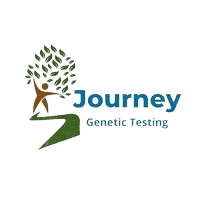Relationship DNA Tests
Kinship DNA testing, often called DNA relationship testing, can be used to prove, or disprove, biological relationships between relatives. We provide many different types of kinship tests including Sibling DNA testing, which can be used to confirm whether alleged siblings are related or not. Relationship tests can also test other family members, such aunts/uncles, grandparents, and even tell if twins are identical or fraternal.
Court admissible relationship DNA tests can be done to indirectly prove paternity using siblings, grandparents, or aunts/uncles.
Aunt/Uncle DNA Test
Our avuncular test determines if a genetic relationship exists between aunts and/or uncles and their niece and/or nephew.
Grandparent DNA Test
This grandparentage DNA test can be used when grandparents need to prove a biological relationship to their grandchild.
Sibling DNA Test
Our sibling DNA tests provide answers whether two or more people share both parents, a single parent, or are not siblings.
Twin Zygosity Test
The only way to confirm with 100% accuracy is twins are identical or fraternal is through twins DNA testing.
Y-Chromosome Test
Y-chromosome tests are done by males only when want to confirm they have the same father, or a common paternal relative.
Maternity Test
Provides proof of the biological relationship between mother and child. 100% accurate results in just one business day.
Mitochondrial DNA Test
If you want to discover if you and another person/people share the same maternal line - mother, grandmother, etc.
Genetic Reconstruction
When the father is not available this test can establish if a child is biologically related to direct blood relatives on his side of the family.
FAQs About Relationship DNA Testing
A legal test is court admissible. The identity of each individual tested is varified and the chain of custody is tracked. A third party performs the collection. Results are delivered within 3 business days. Informational or private test is for your own peace of mind and is not court admissible. You can perform the collections in your own home. The results are delivered in 1 - 2 business days.
No. Relationship DNA testing is what is referred to as “private pay”. This is because DNA testing is not a medical test, even if requested by your medical provider.
DNA samples will degrade over time. We recommend sending all samples to our lab as soon as you can after collecting your samples. We can accept samples arriving at different times, and have a secure and safe method of storing samples once they arrive.
No. A person’s DNA is the same whether it is blood or cheek cells.
If the sample collected is a mouth swab there should be no effect on the outcome of the kinship testing. You should talk to one of our Genetic Consultants if you have recently had a blood transfusion or bone marrow transplant before ordering the test.
No. There is no age limit on collecting DNA. We have tested newborns right after birth, and individuals up to 99 years old.
All DNA samples are destroyed 30 days after testing. We never sell you DNA information, or personal information, and never use it for any other reason except the testing itself.

